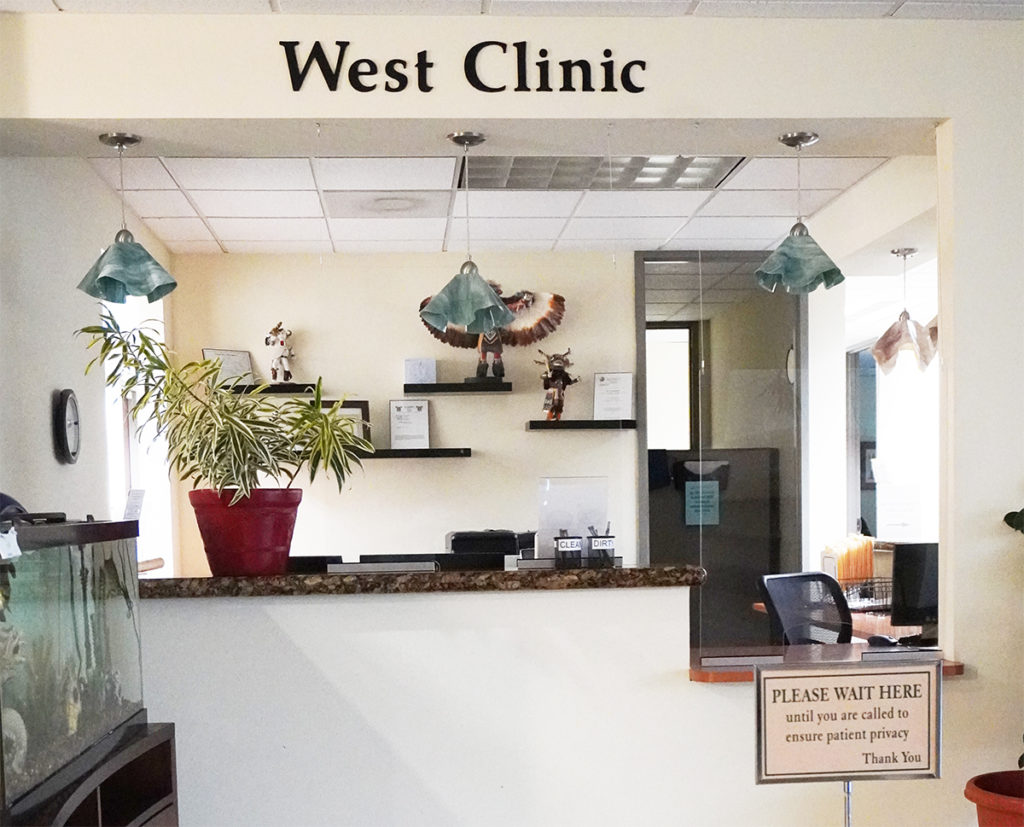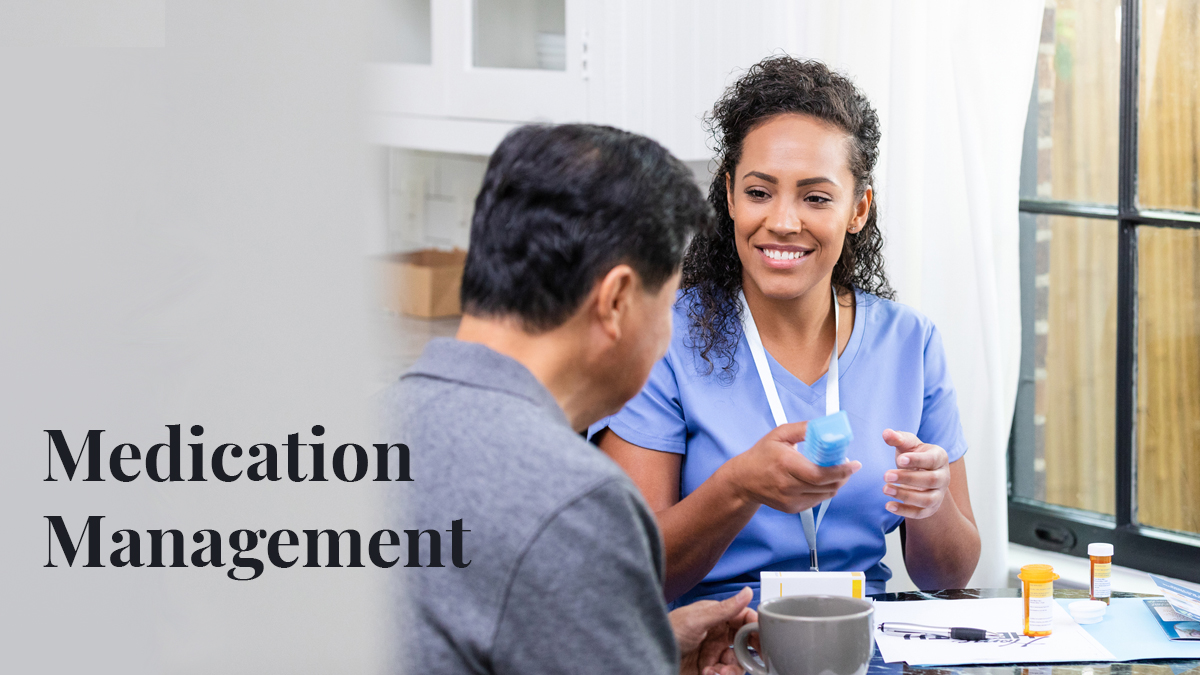Medication Management for Mental Health

What is Medication Management?
Medication Management is the administration and monitoring of medication for the purpose of alleviating or stabilizing symptoms for certain conditions. Psychiatric Medication Management exists specifically to help manage a patient’s mental health disorder(s). Providers prescribe different medications such as mood stabilizers, antidepressants, depressants, antipsychotic, anxiolytic, and stimulant medications. Medication is not always necessary depending on the severity of your condition. Med Management can also help patients with symptoms they may be experiencing due to the process of alcohol or drug detox. Detox medications can be helpful in minimizing cravings to prevent relapses. At Sage, we have providers that specialize in treating detox patients as well as mental health disorders in both adults and children.
Medication Management at Sage Neuroscience Center

Medication providers at Sage Neuroscience Center are here to keep you on track with your prescriptions. Med providers ensure that you are taking the right medication, with the right dosage, at the right time of day for your specific needs. Sage is unique in that we are a clinic with many different services that can help both mind and body under one roof. This includes therapy, primary care, and we have an in-house pharmacy to make picking up prescriptions quick and easy.
We have reliable providers who are Psychiatrists, Physician Assistants, and Clinical Nurse Practitioners who treat both adults and children. All these titles are certified to administer psychiatric medication. While providers do their best to prescribe the right medication for you, there is no way of knowing exactly how your body will react to it. Definitely contact your provider as soon as possible if you are experiencing negative side effects from your medications. If side effects are severe, seek emergency care. Don’t let that scare you though. The need for emergency care is not common.
When Should I Consider Taking Medication?

How do I know when it’s time to start taking psychiatric medication? Is my condition severe enough to need medication management? Is the risk of having bad side effects of medications worth it?
These are valid questions one may ask when considering seeking psychiatric help or asking their existing provider about medication. We encourage you to ask your provider any questions you may have about medications and how they might help your condition or impact other areas in your life. Don’t take medications without knowing what you’re getting yourself into.
It’s a good time to consider medication if your mental health disorder symptoms impair your functioning. Function impairment could be not keeping up with personal hygiene or incapability of completing simple day-to-day tasks. If your condition leads you to have significant disruptions in your work and/or relationships, medication may help. Medications can help you regulate your disorder and make it possible to live your life to the best of your ability. If the symptoms of your mental health problem are increasing over time and typical interventions aren’t working, it may be time to start taking medication. Your med provider recommends you take Medication, especially if once a week therapy is not alleviating your distress.
Starting Medication Management
To begin medication management, you must first complete an assessment with a prescriber. This assessment determines which medications are best for your specific set of needs. There might be treatments for your condition that you haven’t heard of. These treatments may or may not be medication based. For example, TMS (Transcranial Magnetic Stimulation) is can treat treatment-resistant depression). Before your assessment, try to keep an open mind to different options.
Before starting treatment, it’s important to identify what your goal is. Your goal should be as specific as possible. “I want to feel like I used to,” or “I want to feel normal,” are not specific enough. What qualities about how you felt before made you content? A more concrete goal is, “I want to decrease my stress level, increase feelings of content, and return to typical daily functioning.”
When it comes to Medication Management for mental health, it is so crucial that providers know your medical history and any other medications you may be taking- including vitamins. This is to prevent two medications from interacting with each other in a negative way. Always be honest about any prescription or non-prescription drugs you’re using to avoid medical complications. We aren’t here to judge. We’re here to provide you with the best care possible.
Provider Check-Ups

Frequent visits with your provider are important. It’s necessary to check in on how certain meds are working for you. Sometimes patients stop taking their medication because they feel better or think that symptoms that are actually from their disorder are a result of their medication. Consult with your doctor before you stop taking your prescribed medication. If you are not benefiting from medication at all, your provider may need to prescribe a different medication for you. A provider might also prescribe a different med to use with your current one. Sometimes it takes trial and error to find the right fit for you as every person has a different body and should expect varying results.
It is best to communicate with your family or those you live with about your condition, medication, and the possible side effects of that medication. Support from family is always beneficial. Be sure to store your medications in a secure location to prevent children from getting into them.
What’s the Difference Between the Types of Psychiatric Medications?
Mood Stabilizers
These guys will stabilize your mood and manage mood swings. Mood stabilizers treat people with Bipolar Disorder but can also help with anxiety.
Antidepressants
This is one that’s probably the most familiar to you. Antidepressants do what their name implies: treat depression. However, antidepressants also treat personality disorders, insomnia, and anxiety.
Depressants
The goal of depressants is not to make you depressed. Antidepressants calm people who might be overstimulated.
Antipsychotics
Like other psychiatric medications, antipsychotics are there to balance the chemicals in your brain. Antipsychotics treat conditions such as Schizophrenia and Bipolar Disorder. They help with hallucinations and delusions.
Anxiolytics
Anxiolytics are medications that treat anxiety disorders. They help with extreme worry and anxiety attacks.
Stimulants
Stimulant medications treat disorders like ADHD. Stimulants help keep you focused and alert.
How Does Medication Management Work?
If you and your provider decide medication is the best option, they will begin the treatment by starting you on a low dose of medication and work up to larger doses based on your mental and physical response. If you have a bad reaction to a medication, your provider will switch you over to a different one. This process can take time and you probably won’t experience relief immediately. Some medications take longer to work in your systems than others. Some medications have an immediate response. This can be so frustrating when you’re eager, or even desperate for change.
Medications can help get your foot in the door to be able to engage in therapeutic intervention. Medication and therapy can help create change in behaviors or thought patterns that may have developed as a result of mental health struggles or emotional dysregulation. We have to unlearn the unhealthy ways we have coped with our dysregulation in the past.
Medication Management for Substance Use Disorders

For Substance Use Disorders specifically, the medical evaluation for mediation management is quite similar. If you come into our clinic for detox treatment, you may have to stick around for a couple of hours so our SUDS detox providers can monitor how the medications they give you are helping your withdrawal symptoms. It can be dangerous to detox on your own. It is important that you are monitored by a provider to relieve your symptoms of withdrawal and avoid relapses. Detox, along with therapy and an IOP is recommended for patients with Substance Use Disorder.
How Long do I Need to Take Medication?
Taking medication doesn’t have to be forever. Discuss with your provider when it would be appropriate to consider tapering off of medications. During the time period in which you are taking medication, you must listen to the recommendations of your provider. About half of the patients in the United States don’t take their medication properly. If you have specific questions about your prescriptions and how to take them, check with your medication provider, or feel free to ask your pharmacist. It is crucial to keep on top of refills as well. There might be negative effects of missing a dose. The more you keep up with it and listen to the advice of healthcare professionals, the sooner you can feel better.
Many people have apprehensions about taking medications due to stigma or fear of side effects. Continuous communication with your medication provider and the other providers in your network will give you the best possible support. Sage is all about comprehensive care. We want to take care of both your mind with psychiatric medication management and counseling and care for your body with our primary care clinic. Mental illness can’t be cured, but it can be managed with the right medication. Be patient with the process. While it is valid to be cautious and it can be scary to try at first, medicine for your condition could help you change your life.
